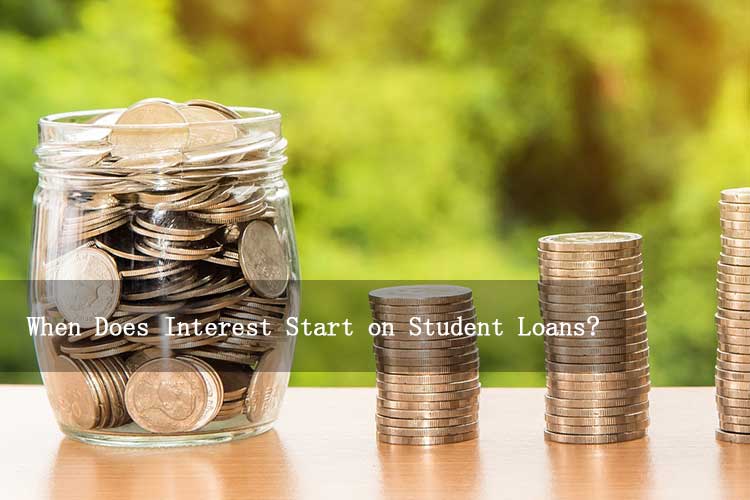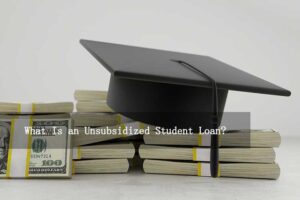
Managing student loans is an important part of your education journey. It’s crucial to understand how and when does interest start on student loans. For borrowers, knowing this can help keep repayment costs lower and allow for better financial planning. In this article, we will explore when interest starts for different loan types and share tips to help reduce your overall debt.
What Are Student Loans and How Does Interest Work?
Before discussing when interest starts, it’s essential to grasp how student loans and interest work. Student loans are borrowed funds for covering educational expenses like tuition, housing, books, and other costs. Like any loan, student loans have an interest rate, meaning borrowers pay back both the loan amount and a percentage of it as interest.
Interest rates vary based on factors such as the type of loan, whether it’s a federal or private loan, and your credit score (in the case of private loans). The key issue for many borrowers is when interest starts on student loans — because this directly impacts how much debt they’ll accumulate over time.
When Does Interest Start on Federal Student Loans?
Federal student loans offer different terms regarding when interest begins. Whether you’re taking out subsidized or unsubsidized federal loans will largely determine when interest starts accruing.
1. Direct Subsidized Loans
For Direct Subsidized Loans, interest does not begin accruing while you are in school at least half-time, during the grace period (which is typically six months after you graduate), or during deferment periods. The federal government pays the interest during these times, which is why this loan is termed “subsidized.”
Key points for Direct Subsidized Loans:
- No interest accrues while in school or during deferment.
- The federal government covers interest during these periods.
- Interest starts accumulating after the grace period ends and repayment begins.
2. Direct Unsubsidized Loans
For Direct Unsubsidized Loans, interest begins accruing immediately after the loan is disbursed — even while you’re in school. If you choose not to pay the interest while you’re still enrolled, it will accumulate and capitalize, meaning it will be added to the loan’s principal once repayment begins.
Key points for Direct Unsubsidized Loans:
- Interest starts accruing as soon as the loan is disbursed.
- You are responsible for paying the interest while in school, but it’s not required until repayment begins.
- If unpaid, interest capitalizes and increases the total loan balance.
3. Direct PLUS Loans
Direct PLUS Loans (for graduate students or parents of dependent undergraduates) function similarly to unsubsidized loans, where interest starts accruing from the time the loan is disbursed. These loans generally come with higher interest rates than subsidized or unsubsidized loans.
Key points for Direct PLUS Loans:
- Interest starts accruing immediately upon disbursement.
- You can choose to pay the interest while still in school, or defer payments until after graduation, but unpaid interest will capitalize.
4. Federal Perkins Loans
Although the Perkins Loan program ended in 2017, borrowers who already have Perkins Loans should be aware that interest does not accrue while the student is enrolled at least half-time. However, once repayment begins, interest starts accruing at a fixed rate of 5%.
When Does Interest Start on Private Student Loans?
Private student loans are issued by private lenders, such as banks or credit unions, and their terms vary depending on the lender. Typically, interest starts accruing immediately upon disbursement, just like federal unsubsidized loans. However, some private lenders may offer flexible repayment options, including grace periods or deferment, but these typically come with the caveat that interest continues to accrue even if payments are postponed.
Key points for private student loans:
- Interest typically starts accruing from the time the loan is disbursed.
- Private lenders may offer grace periods, but interest usually accrues during these periods.
- Borrowers should carefully review the terms of their loan agreement to understand when interest begins and how it’s applied.
Grace Periods and Interest Accrual
Many federal loans, including Direct Subsidized and Unsubsidized Loans, offer a grace period after graduation (or after dropping below half-time enrollment) before payments must begin. For subsidized loans, no interest accrues during this period, as the government continues to cover it. For unsubsidized loans, however, interest continues to accrue, and any unpaid interest is capitalized at the end of the grace period.
Private student loans may or may not have grace periods, and interest often accrues even if no payments are due.
Interest Capitalization: What Borrowers Need to Know
One of the most important aspects of understanding when interest starts on student loans is knowing about interest capitalization. Capitalization occurs when unpaid interest is added to your loan’s principal, which means you’ll end up paying interest on a larger amount.
Here’s how it works:
- For unsubsidized federal loans and private loans, if you don’t pay the interest while you’re in school or during a grace period, it capitalizes at the end of the deferment period.
- This increases the total amount you owe and, consequently, the total interest you will pay over the life of the loan.
How Can You Manage Interest Accumulation?
Interest accumulation can significantly increase your debt burden, but there are ways to manage it effectively:
- Make Interest Payments While in School: Even though not required, paying some interest during school prevents later capitalizing, saving you money long-term.
- Choose an Income-Driven Repayment Plan: Federal loans offer income-driven plans that lower monthly payments and, sometimes, the interest amount.
- Refinancing: Refinancing with a private lender can lower your interest rate, especially if your credit score has improved. But refinancing federal loans will forfeit protections like income-driven repayment and forgiveness options.
- Consider Loan Forgiveness Programs: Public service or teaching professions may qualify for loan forgiveness, helping reduce or eliminate your loan balance.
Conclusion
Understanding when interest starts on student loans is critical to managing your debt effectively. Whether your loans are federal or private, knowing when interest starts is crucial for managing payments. Review your loan terms carefully. Consider strategies to reduce the amount of interest over time. By taking early control of your loan debt, you can avoid financial strain and set yourself up for success.



